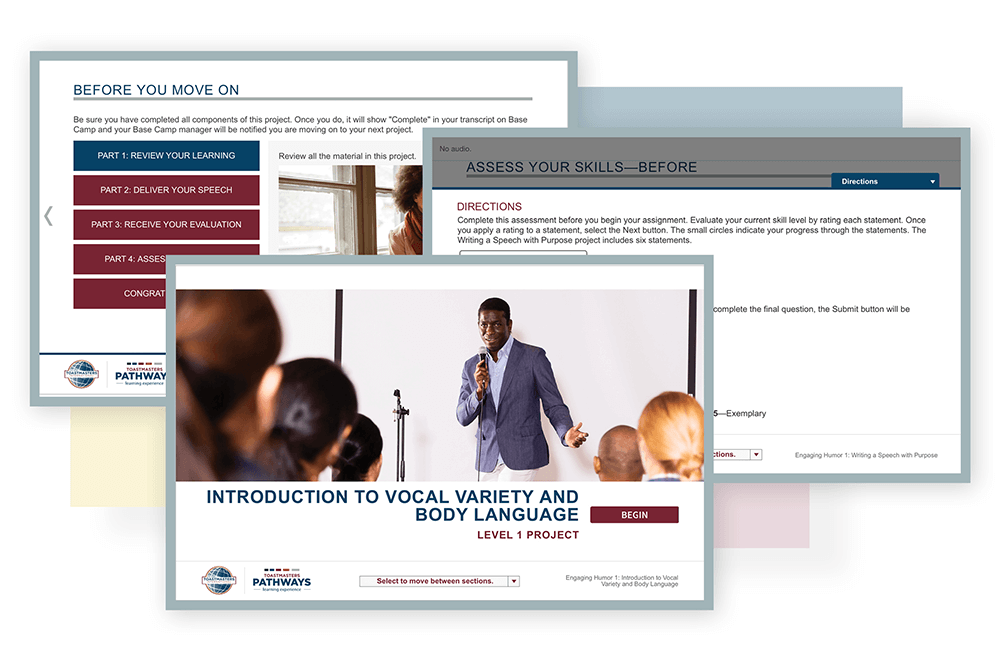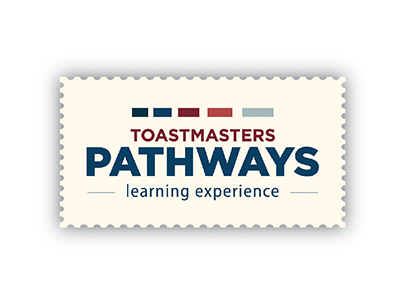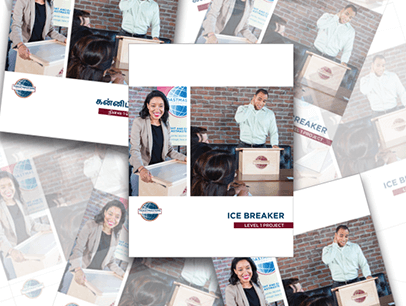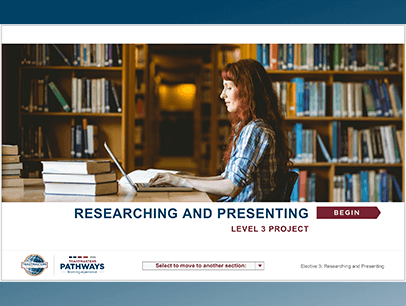
Four years after the launch of Pathways, Toastmasters has released member-driven improvements to the program’s core Level 1. There is a fresh focus on public speaking basics in this level, which is the foundational first step all Toastmasters take in any of the 11 education options in Pathways.
Level 1 has four projects—with five speeches—which include a mix of familiar fundamentals and new skill-building practices. The time-honored “Ice Breaker” project has been substantially updated with new content. The “Evaluation and Feedback” project remains a two-speech project and is joined by “Writing a Speech With Purpose” and “Introduction to Vocal Variety and Body Language.” Before completing Level 1, members will also need to serve as a speech evaluator.
Level 1 projects allow new members to hit the ground running toward their public speaking goals.
Additionally, projects have been enhanced to improve navigation. For example, participants will now have clearer instructions on how to mark their projects complete, a process that was sometimes unclear to users before the change.
One project is leaving the Level 1 lineup: “Researching and Presenting,” which has also been updated, and will now be an elective in Level 3.
Level 1 projects introduce the program to new Toastmasters, the majority of whom cite the desire to learn basic speaking skills as their main reason for joining. This revamping will allow them to hit the ground running toward this goal. In fact, according to a survey by the World Headquarters Research and Analysis staff, more than 84% of new members completed Level 1 during the 2020-2021 program year—even though it was a time of COVID disruptions around the world.
Ultimately, by mastering Level 1’s ground-floor public speaking proficiencies, members should feel positive and confident as they continue their Pathways journey, selecting and excelling in paths that most interest them.
“Not only do these changes address the immediate need of our newest members, they support the organization’s mission to continually provide all members with the skills and training they seek, no matter where they are in their personal Toastmasters experience,” says Kate Wingrove, education programs and training director for Toastmasters International.
The Keys to Change
The Toastmasters Education Team has been carefully tracking member observations, suggestions, and critiques since the program began its phased rollout in 2017. Pathways has undergone small modifications along the way to address simple fixes. However, the Education Team waited for time and user experiences to reveal what, if any, complex changes would be the most beneficial to members.
Level 1 generates a high level of interest among new Toastmasters—more than 84% completed it in their first year of membership.
Pathways received early praise for developing skills in some 300 practical, professional competencies. However, feedback also gave rise to a clear, consistent message: Level 1 needed to make basic speaking and speechwriting skills “blatantly obvious.” These are skills that members indicated they joined to learn, and what they felt they needed to achieve continuing personal and professional goals.
The Toastmasters International Board of Directors, based on Education Team recommendations, acted in August 2021 to approve the changes to Level 1.
What to Know First
- Level 1 changes are now live on Base Camp.
- The new Level 1 projects apply only to paths purchased after October 27, 2021. Paths already in progress or completed on that date will continue in the previous Level 1 format to ensure a smooth transition.
- New Level 1 projects are currently available only in English, with translations to follow in the future.
- “Researching and Presenting” is now an elective in Level 3 for anyone purchasing paths after October 27.
The New Level 1
Ice Breaker:
This speech continues as the first project undertaken by a new member. Participants learn basic speech structure, rehearsal techniques, and the value of speech evaluations, and take the opportunity to introduce themselves to the club.Writing a Speech With Purpose:
This project focuses on strategies for selecting a topic, defining a purpose, and producing a well-written and organized speech.Introduction to Vocal Variety and Body Language:
Participants learn to recognize the impact of vocal variety and identify changes in pitch, tone, volume, and pace, as well as when and how to effectively use body language and gestures to enhance a presentation.Evaluation and Feedback:
This project, which comprises two speeches, teaches important skills Toastmasters will use throughout their Pathways journey and beyond: how to receive and act on constructive feedback. The requirement to serve as a speech evaluator will help members learn how to give the valuable gift of feedback to others.Ongoing Pathways News
Keep watching member communications, including emails, Leader Letter, and the Toastmaster magazine, for continuing Pathways news. The Education Team will continue exploring potential program changes, such as how to better orient members to both Toastmasters and Pathways, strategies to emphasize and encourage meeting role participation, and improvements to the path selection process.
Stephanie Darling is a former senior editor of and frequent contributor to the Toastmaster magazine.
Related Articles

Club Experience
Designed to Deliver

Personal Growth
Ice Breakers Offer Endless Opportunities

Presentation Skills



 Previous
Previous

 Previous Article
Previous Article